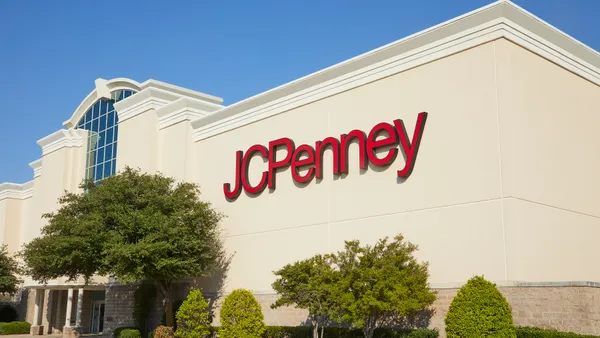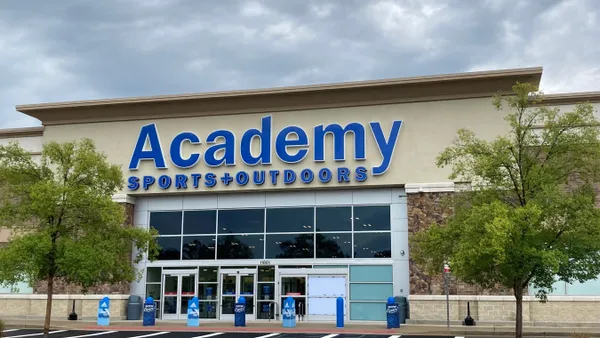Dive Brief:
- Burlington Stores will end its e-commerce business and reduce total inventory by double digits this year in an effort to add efficiency and agility to the off-price retailer's operations, recently installed CEO Michael O'Sullivan said on an earnings call Thursday.
- "The difference with off-price is if we can carefully control our liquidity and tightly manage our inventory and expenses and plan our comp sales somewhat conservatively, then we’ll be in a better position to absorb and recover from any downturn in sales," O'Sullivan said. The company has already made some progress on these initiatives. At the beginning of February, same-store inventory levels were down 15% year-over-year and the company expects double-digit decreases throughout 2020. "This tighter inventory control should drive faster turns and lower markdowns," he said.
- The CEO said he is also going to demand more flexibility from his supply chain teams to quickly adjust to changes in planning or forecasts. "In 2020, we will be looking at ways to make our key operational processes even more nimble and effective," he said.
Dive Insight:
Ending the e-commerce business will come with some operational savings. But because digital sales only made up 0.05% of total sales, the savings of shutting it down will be proportionately small. O'Sullivan described the upside as "a little bit of improved leverage on freight."
O'Sullivan expressed doubt that the e-commerce model could work for any retailer with a $12 average unit price like Burlington.
"E-commerce — when you fully account for the cost of merchandising, processing, shipping, accepting returns — it’s very difficult, impossible to make at those price points in the businesses that we compete in," he said.
Before joining Burlington, O'Sullivan was the COO of competitor Ross Stores, so it's no wonder operations are his focus.
Off-price retailers, such as Burlington, Marshall's, TJ Maxx and Ross, have been sitting pretty for the last few years. The trade war brought uncertainty to traditional retailers and apparel brands, sending plenty of high-quality product already landed in the U.S. into the off-price market.
"When there's disruption in the marketplace, it could be when there [were] issues in the ports a couple of years ago or if it's cold weather in the spring season ... wherever there is any kind of disruption, there is more product available to us," said former Burlington CEO Thomas Kingsbury in May.
UBS called this slate of retailer's "internet proof" but predicted competition among them would eventually turn down the temperature. Burlington may now be showing early signs of that. Revenue and margins have both been on a positive trend for Burlington, but O'Sullivan said it's not enough and operational efficiency is part of the answer.
"We’ve been carrying a lot of inventory over time and compared with our peers, we turn more slowly, we carry more inventory and that’s why we’re very confident that we can turn this business faster than we have," the CEO said.
Correction: An earlier version of this story incorrectly identified the retailer as Burlington Coat Factory. The retailer's name is Burlington Stores.














